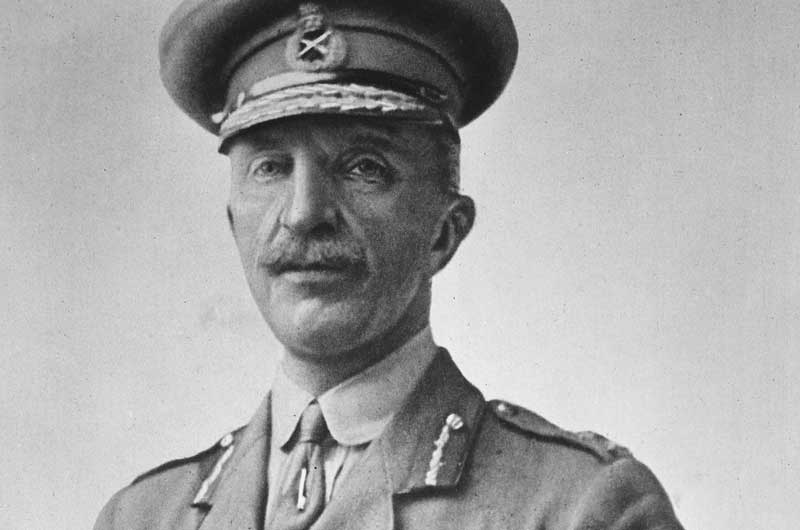Assassin’s Creed | History Today - 5 minutes read

There has been a welcome proliferation of publications marking the centenary of the Irish Civil War. This book from the Irish Times journalist Ronan McGreevy should be required reading on that conflict, as well as on Ireland’s wider revolutionary period. Not only does McGreevy recount, in vivid detail, the murder of Sir Henry Wilson in London on 22 June 1922, he puts the killing in the context of the political tumult from which the Irish Free State emerged.
That the assassins, Reginald Dunne and Joseph O’Sullivan, despite injuries sustained in the war (both had served with the British Army during the First World War and subsequently joined the Irish Republican Army), managed to pull off the attack was extraordinary in itself. The assassination of high-profile figures was a long-standing strategy of militant Irish republicanism and McGreevy painstakingly details how and why Wilson became a target for the IRA. Born in County Longford in 1864, he was a major military figure during the First World War and a much admired informal adviser to Prime Minister Lloyd George. He straddled military and political worlds and, when his armed service was over, he was elected as MP for the staunchly unionist North Down constituency.
Unlike many in Whitehall who came to recognise the need for, if not the merits of, Home Rule for Ireland, Wilson remained vehemently opposed, particularly in his bullish and uncompromising public pronouncements. That is not to say that he failed to recognise how counterproductive executions of republican prisoners like Kevin Barry would be, but Wilson’s public image was that of a ‘bigoted partisan’, as he was described in the Irish Independent.
The shocking sectarian violence that occurred in Northern Ireland in 1920-22 and Wilson’s attitude to it receives significant focus in Great Hatred. It is a grim reminder that violence and death in this short period were as intense, if not more so, than during the Troubles of 1969-95. The chairman of the Provisional Irish Government Michael Collins used the bloodshed in Ulster (and Wilson’s association with the worst excesses of the Special Constabulary which was created to restore order) to publicly label the field marshal as a ‘violent Orange partisan’. If would-be assassins in London needed a cue, that was just one of many.
McGreevy’s book highlights the many nuances and complexities in British and Irish politics at the time. This is, after all, the story of two British-born Irish republicans who killed an Irish-born British imperialist. Reggie Dunne and Joe O’Sullivan shared a background in the army – O’Sullivan lost a leg in battle and Dunne experienced the PTSD which bedevilled so many former soldiers – but also in republican circles in London. The pair used their war medals to divert attention from their underground gun-running, intelligence work and spying. Their Catholic religiosity and willingness to embrace the tradition of suffering and sacrifice among Irish martyrs bound them together.
A key contention of Great Hatred is that the murder triggered the Irish Civil War. There is no doubt that its effect was akin to flicking a lit match into an already smouldering political cauldron. The occupation of the Four Courts in Dublin by anti-Treaty forces, in breach of the terms of the Anglo-Irish Treaty of 1921 which concluded the War of Independence, drew condemnation from Westminster. The so-called Pact Election of June 1922, in which both sides of the Treaty divide attempted to agree a post-election coalition in advance, was met with deep scepticism by the British government. The murder of an MP who had been a top military adviser to that government was, in many ways, the final straw.
The condemnation of the murder in the British and international press compounded the pressure on Collins to act; he cannot have been unmoved by the reputational damage done to his fledgling administration by lurid editorials in the foreign press. The British were ‘spoiling for revenge’ and impressed on the Irish Provisional Government the need to bring the rebels in the Four Courts to heel. Lloyd George told Collins that His Majesty’s government would not countenance any continuation of the ‘rebellious defiance of the principles of the Treaty’. A plan for General Macready, who commanded the remaining British forces in Ireland, to storm the Four Courts was mooted, but he recognised it would be politically disastrous. Instead it was left to the new Irish army to blow up the anti-Treaty garrison, setting in train the paroxysm of the Civil War.
Whether the assassination was formally sanctioned by Michael Collins is the focus of much of the final chapter and the reader is left in no doubt as to McGreevy’s conclusion – backed up by plenty of evidence – in that regard. Of great assistance in charting the story of the assassins are the records held in Ireland’s Military Archives, which thankfully survive, unlike the many records which went up in smoke when the bombs rained down on the Four Courts at the end of June 1922.
The shooting of Henry Wilson just a week before the Four Courts fell was a major, and perhaps heretofore understated, factor in precipitating the war. Ronan McGreevy’s riveting and expertly presented survey of events and their wider contexts ensures that the assassination at 36 Eaton Place on 22 June 1922 is rightly positioned at the heart of that most traumatic of periods in the history of Ireland.
Great Hatred: The Assassination of Field Marshal Sir Henry Wilson MP
Ronan McGreevy
Faber 464pp £20
Buy from bookshop.org (affiliate link)
Owen O’Shea is a PhD candidate at University College Dublin. His book on the Civil War in Kerry will be published by Merrion Press in November 2022.
Source: History Today Feed